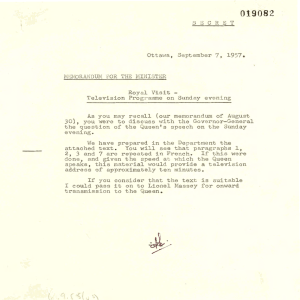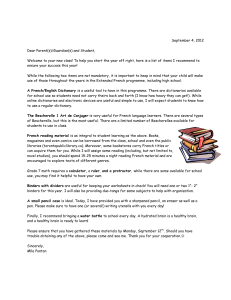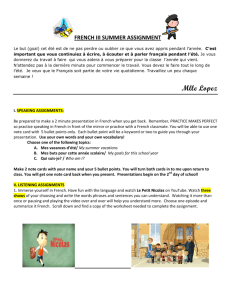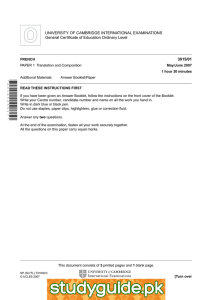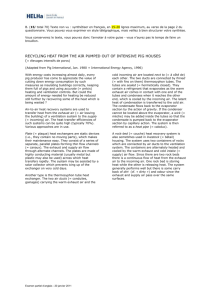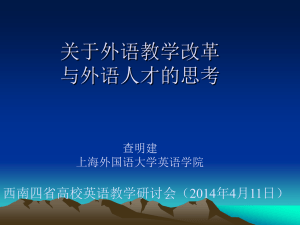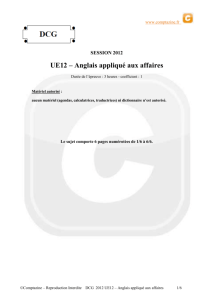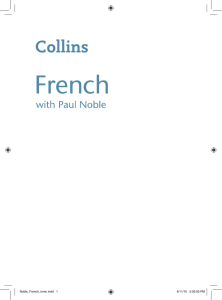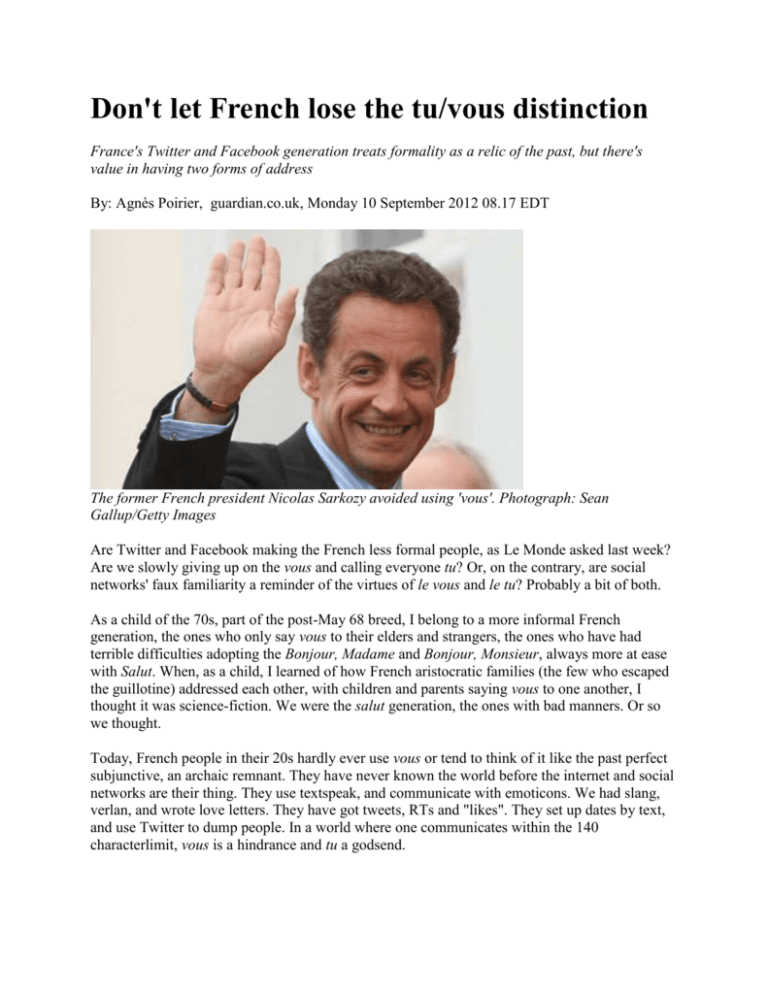
Don't let French lose the tu/vous distinction
France's Twitter and Facebook generation treats formality as a relic of the past, but there's
value in having two forms of address
By: Agnès Poirier, guardian.co.uk, Monday 10 September 2012 08.17 EDT
The former French president Nicolas Sarkozy avoided using 'vous'. Photograph: Sean
Gallup/Getty Images
Are Twitter and Facebook making the French less formal people, as Le Monde asked last week?
Are we slowly giving up on the vous and calling everyone tu? Or, on the contrary, are social
networks' faux familiarity a reminder of the virtues of le vous and le tu? Probably a bit of both.
As a child of the 70s, part of the post-May 68 breed, I belong to a more informal French
generation, the ones who only say vous to their elders and strangers, the ones who have had
terrible difficulties adopting the Bonjour, Madame and Bonjour, Monsieur, always more at ease
with Salut. When, as a child, I learned of how French aristocratic families (the few who escaped
the guillotine) addressed each other, with children and parents saying vous to one another, I
thought it was science-fiction. We were the salut generation, the ones with bad manners. Or so
we thought.
Today, French people in their 20s hardly ever use vous or tend to think of it like the past perfect
subjunctive, an archaic remnant. They have never known the world before the internet and social
networks are their thing. They use textspeak, and communicate with emoticons. We had slang,
verlan, and wrote love letters. They have got tweets, RTs and "likes". They set up dates by text,
and use Twitter to dump people. In a world where one communicates within the 140
characterlimit, vous is a hindrance and tu a godsend.
Things get complicated when different generations collide on the social networks. Last year, as
the Le Monde blogpost points out, Franz Durupt, a young hack from the French daily dared to
say "tu" to Laurent Joffrin, editor of Le Nouvel Observateur magazine on Twitter. Scandal. The
older journalist complained and the Twittersphere accused him of being pedantic. He retorted
that all he asked for was a little respect, and that the vous culture was exactly what social media
needed most.
So, just who is being pedantic, and who's being disrespectful?
The tu bunch often point to our Latin neighbours to advocate abandoning vous once and for all.
However, arguing that as Italian and Spanish have long lost use of their formal pronouns French
should do the same is slightly misleading. Usted and Lei in Italian are in fact much more formal
than the French vous. Besides, there can be, as in Italian, a political background. I remember my
Italian editor at L'Espresso who insisted I didn't say vous to him as it reminded him of when
Mussolini tried to impose an equivalent of the French vous on the Italian language (he wanted to
use voi as a way to modernise the formal third person Lei). Words are a minefield.
I personally didn't have a strong opinion on the matter until Nicolas Sarkozy came to power in
2007. The former French president said tu to everyone. This shocked and infuriated me as it did
millions of French people. How dare he say tu to people he didn't know? How disrespectful, how
hypocritical, how disingenuous. I suddenly realised the importance of having two forms of
address. Vous is not only a sign of respect and politeness towards an older person or a stranger; it
puts a healthy and adult distance between two individuals, it gives them some space to actually
get to know one another better, to win the other over and get to the stage where they'll happily
say "tu". Tu is a sign of real intimacy, one that should be genuine, not contrived. Tu is a gift to
real friendship – just not the kind you necessarily have with your 1500 Facebook "friends".
© 2012 Guardian News and Media Limited or its affiliated companies. All rights reserved.

